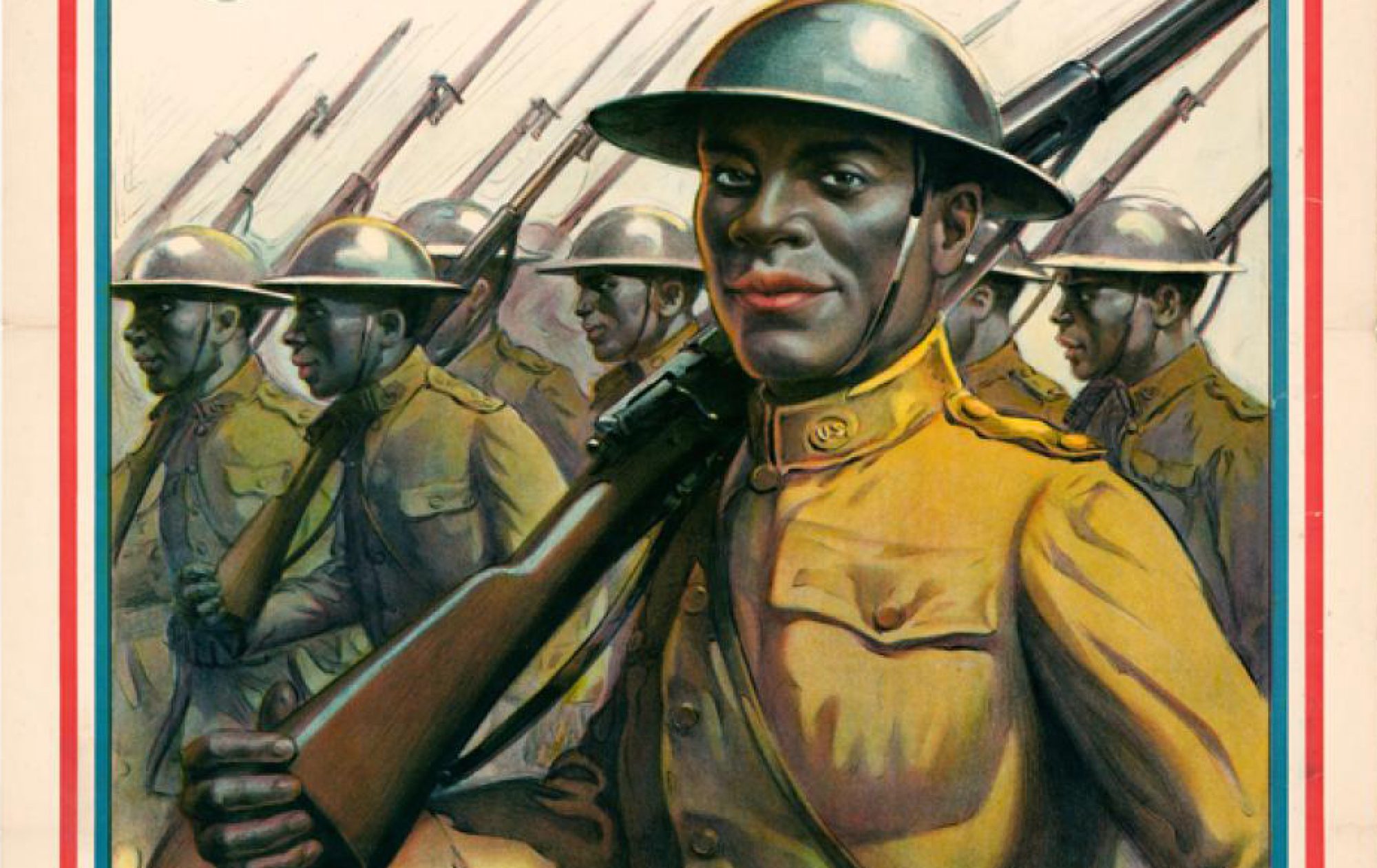 While African American soldiers who served overseas fought for more toleration and acceptance, at home African American men and women were in the middle of a hostile racial climate that perpetuated segregation and discrimination. African American women were not able to integrate into the YWCA and American Red Cross, and many were shut out of jobs working in war plants. In 1918, the Gorham Manufacturing Company would not employ African American women at their Providence, RI factory. The rationale at the time was because “white girls refused to work with colored girls.” Ironically, overseas at the battlefront, white and black Rhode Island service men were spilling the same red blood in France.
While African American soldiers who served overseas fought for more toleration and acceptance, at home African American men and women were in the middle of a hostile racial climate that perpetuated segregation and discrimination. African American women were not able to integrate into the YWCA and American Red Cross, and many were shut out of jobs working in war plants. In 1918, the Gorham Manufacturing Company would not employ African American women at their Providence, RI factory. The rationale at the time was because “white girls refused to work with colored girls.” Ironically, overseas at the battlefront, white and black Rhode Island service men were spilling the same red blood in France.
 African American women also played critical roles at home during the war years. They would provide support for African-American soldiers at training camps throughout the country and
also served in “colored auxiliaries” of the Red Cross, YWCA and Nurses Corps.
African American women also played critical roles at home during the war years. They would provide support for African-American soldiers at training camps throughout the country and
also served in “colored auxiliaries” of the Red Cross, YWCA and Nurses Corps.

Passport photo 1916
Dr. Harriet A. Rice
Dr. Harriet Alleyne Rice was born to George and Lucinda Rice in 1866 in Newport and lived a considerable amount of her life at the family home at 75 Spring Street. She graduated as a top student at Newport’s Rogers High School and in 1882, she went on to become the first African American student to graduate from Wellesley College. Soon after she would earn a medical degree at the University of Michigan Medical School and further training from the Women’s Medical College of the New York Infirmary for Women and Children.

At the outbreak of World War I, Dr. Rice attempted to join the American Red Cross to take part in providing medical services for American troops, but was denied because of her race. Undaunted, she contacted the French government who were more than willing to have an experienced doctor available to treat wounded French troops. In July 1919, the French Embassy in Washington, DC presented Dr. Harriet Alleyne Rice of Newport, Rhode Island the “Medaille de Reconnaissance de la Francaise” or Medal of French Gratitude, for her outstanding services in French military hospitals treating wounded French soldiers during the war. After the war, Dr. Rice returned to America to continue her medical practice for another 40 years.

Mary E. Jackson
A statistician at Rhode Island Labor Department, during WWI she was appointed as a Special Worker for Colored Girls on the national YWCA War Work Council, analyzing employment trends and recommending programs to encourage fair employment of women of color.
As an early advocate of the rights of working women, she wrote an article in NAACP’s magazine The Crisis in November 1918 entitled, “The Colored Woman in Industry” detailing the working conditions of many of the women in factories, the many industries that they were working in, and the hopeful future of colored women in industry. She describes the working conditions of women of color in America being greatly defined by the world war stating, “Thousands and thousands of eager boys have gone to France; we all know about them. Few of us realize that at the same time an army of women is entering mills, factories and all other branches of industry.” This forward-thinking woman not only discusses the prejudice and poor working conditions these women faced, but also the inequality of wages between blacks and whites, and between men and women.
Learn more about Dr Harriet Rice and Mary Jackson at http://smallstatebighistory.com/rhode-island-women-of-color-during-the-great-war/
Women’s Newport League

c.1900

After the war, African American veterans and their families had a renewed sense of becoming fully enfranchised American citizens. Led by the NAACP and other organizations, there was an organized intent upon improving social, employment and civic conditions in the African American community. World War I represented a turning point in African American history, both nationally and in Rhode Island.
Newly empowered by living in Northern urban cities and making undeniable contributions both at home and overseas during the war, the stage was set for an energetic social and civil rights agenda. One of the most active organizations was the National Association’s of Colored Women’s Clubs.
Established in 1896 to promote the welfare of women of color and their families, the Clubs led the effort during the WWI years to enact anti-lynching federal laws to stem the alarmingly rising tide of lynchings that included returning African heritage veterans. The Newport, Rhode Island chapter was the Women’s Newport League led by Mary Dickerson. Mary E. Jackson of Providence, Rhode Island was a leading member of the National Colored Women’s Clubs and during the war she was the Industrial Secretary for Colored Work.
